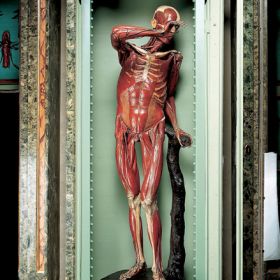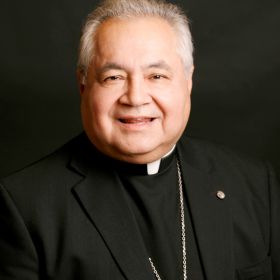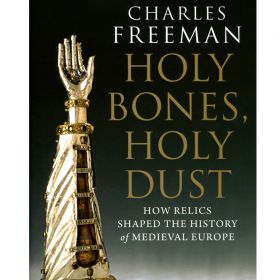Black Friday costs the Windsor-Essex Catholic District School Board big money. On the day in November when U.S. shopping malls offer crazy bargains the board had 133 of its employees off work — 48 claimed a personal day; the rest called in sick.
Teachers, janitors, secretaries call in sick in unusual numbers on Mondays, Fridays, before a long weekend, before March break and around American Thanksgiving, according to Jamie Bumbacco, the Windsor-Essex board’s executive superintendent of human resources.
TORONTO - The Marshall Medium student newspaper was looking for hot topics for its spring 2011 issue. So when 12th-grader Erica Lenti pitched a story about the gay-straight alliances springing up in Ontario schools, the newspaper staff was sold.
Lenti interviewed staff and students at Marshall McLuhan Catholic Secondary School in Toronto and the article passed through editing. But when Lenti picked up a copy of The Medium, she learned her story had been pulled.
Her facts were incorrect, she was told. Her take: school administrators wanted nothing to do with the topic.
Cutting-edge science: the church and the study of human anatomy
By Carol Glatz, Catholic News ServiceVATICAN CITY - Many readers of the Vatican's official newspaper might have been taken by surprise in mid-January by an article effusively praising a well-known exhibition of "plastinated" human bodies, which was making an extended stop in Rome.
"Body Worlds," which L'Osservatore Romano called a "wonderful ode to respect for the body," is an exhibition of preserved human corpses, displayed in often sporty stances.
OTTAWA - Despite the many cases in recent years of unfaithful priests, an expert on sexual abuse and pornography predicts a future with a “much healthier Church and healthier priests.”
Peter Kleponis is a Pennsylvania psychologist who has counselled priests who sexually abused minors as well as men addicted to pornography, his specialty. He says the Church has gone through a painful phase and, although “it’s not over yet,” there is reason for optimism.
“There is hope. There is change,” said Kleponis. But, he adds, “there is still more purification and purging that needs to be done.”
Dominicans have a long history of being rather dissatisfied with this world. But they have never merely complained.
Canadian Dominican Father Philippe LeBlanc has complained, but never aimlessly. He pioneered a Dominican presence at the United Nations in Geneva. Beginning in 1996, in partnership with Franciscans International, LeBlanc and a band of Dominicans have been standing up at the United Nations Commission on Human Rights and the Sub-Commission on the Promotion and Protection of Human Rights to point out where the world has failed, where power and blind arrogance has injured the poor, where dignity has been forgotten.
Charles Freeman offers a history of medieval relic worship that is both intriguing and engaging — but not, in the end, sympathetic to its subject.
Freeman ambitiously tackles the long Middle Ages — from the start of relic worship among early Christians to the Renaissance and Reformation, when the cult of saints and the reality of miracles began to be questioned. There are many relics in Holy Bones, Holy Dust, but Freeman finds few saints as he generally disparages the Medieval men and women who wrote about, built around and venerated relics.
The author deserves praise for trying to bring together into one story, spanning more than 1,500 years, the complex facets of relic worship from across Europe. Scholars specializing in medieval religion tend, instead, to focus on one area, period or cult.
PICKERING, ONT. - Believers in every religion and through every century of human history have done something they can’t quite describe, justify or do without. They pray.
They may meditate, contemplate, recite, babble or immerse themselves in silence. They may seek solitude or seek company to pray with others. They may follow the rules of a liturgy, improvise or seek a simple, direct encounter with God.
Prayer can be rote execution of routine, woven into the fabric of daily life. Or it can be a unique, creative leap into transcendence. Prayers may be led by a spiritual master, immersed in custom and culture or reach for an unconstrained, individual expression of the spiritual.
Spanish priest says exorcism is God's 'gift to help us believe'
By Lilla Ross, Catholic News ServiceJACKSONVILLE, Fla. - If everything you know about exorcism you learned by watching the movie, "The Exorcist," Father Jose Antonio Fortea wants to exorcise those notions from your head.
To learn about exorcism, Father Fortea said the best textbook is the Bible, especially the Gospels, because after all, Jesus was an exorcist.
Father Fortea, a priest of the Diocese of Alcala de Henares in Spain, is an exorcist. He is the author of several books including "Interview With an Exorcist." Currently based in Rome studying for his doctorate in theology, he was in Florida recently to give talks about exorcism and pastoral care.
Under the radar, African women struggle more than others in food crisis
By Chris Herlinger, Catholic News ServiceNAIROBI, Kenya - The year 2011 was not good for women such as Joan Ochieng. Just about everything was a struggle.
"We were not treated fairly," the Nairobi resident and single mother said of life in 2011, noting the many pressures, including spiraling food prices that caused her and her family of four children and one grandchild to often go to bed hungry.
When things like rice doubled in price in six months, a bowl of porridge was often the only salve in a day in which eating three meals was almost unheard of. Even eating two meals was often a rarity.
Toronto needs more Catholic foster parents like Nellie and Bernie
By Michael Swan, The Catholic RegisterTORONTO - The long-standing shortage of Catholic foster parents in Toronto isn’t getting any better. The Catholic Children’s Aid Society of Toronto has 297 foster care spots available on its own roster. This year it has had to rely on 412 out-of-town spots it purchases from private contractors.
Out-of-town care costs a lot more and it removes kids from their school, their circle of friends and family — everything that can help maintain their sense of belonging. Trouble is, there aren’t a lot of couples like Nellie and Bernie Desroches left in the city. And it is likely there will be fewer in the future.
More...
TORONTO - Terence Sheridan, the newly appointed president of Toronto’s St. Michael’s College School, may be the first layperson to lead the school, but he’s no stranger to the Basilian tradition of the community.
An alumnus of the Toronto all-boys private school, Sheridan has spent the last 15 years as a teacher, administrator and coach at St. Michael’s. And in July 2012, he will succeed Fr. Joseph Redican, C.S.B., as president. During his two-year term, Sheridan will also continue to serve as principal of the school, a role he has held since January.
Suzanne Fowler wants people to fill the hole in their hearts with God, not with food.
That’s the premise of Fowler’s Light Weigh program for weight loss, which she created to solve her own struggles with eating.
“People are not going to food because they’re physically hungry when they’re overeating,” Fowler told The Catholic Register. “They’re going to food because of a spiritual hunger. It’s emotional. It’s taking place in the heart.”
Catholic school affordability: Progress made but still a long way to go
By Carol Zimmermann, Catholic News ServiceWASHINGTON - When educational leaders look at ways to make Catholic schools more affordable, they are happy about some of the positive steps that have been made but fully aware that there is still a lot to do.
During a recent conference at The Catholic University of America, a group of panelists focused particularly on the status of tuition tax credits and how they have enabled students who would normally not be able to afford Catholic schools to attend them.
Currently, there are 11 school voucher programs in the United States and nine scholarship tax-credit programs. Some states have more than one program.
VATICAN CITY - The Prefecture of the Papal Household, the office responsible for handing out free tickets to papal events, estimated more than 2.5 million people saw Pope Benedict XVI at the Vatican in 2011.
The prefecture -- headed by U.S. Archbishop James M. Harvey -- estimated 500,000 people attended a liturgy celebrated by Pope Benedict in the month of May.
Pope Benedict beatified Pope John Paul II May 1. While there may have been only 500,000 people with tickets in St. Peter's Square and on Vatican territory, Italian police had said more than 1 million people were gathered in and around the Vatican and in front of large video screens in several parts of Rome for the Mass.















